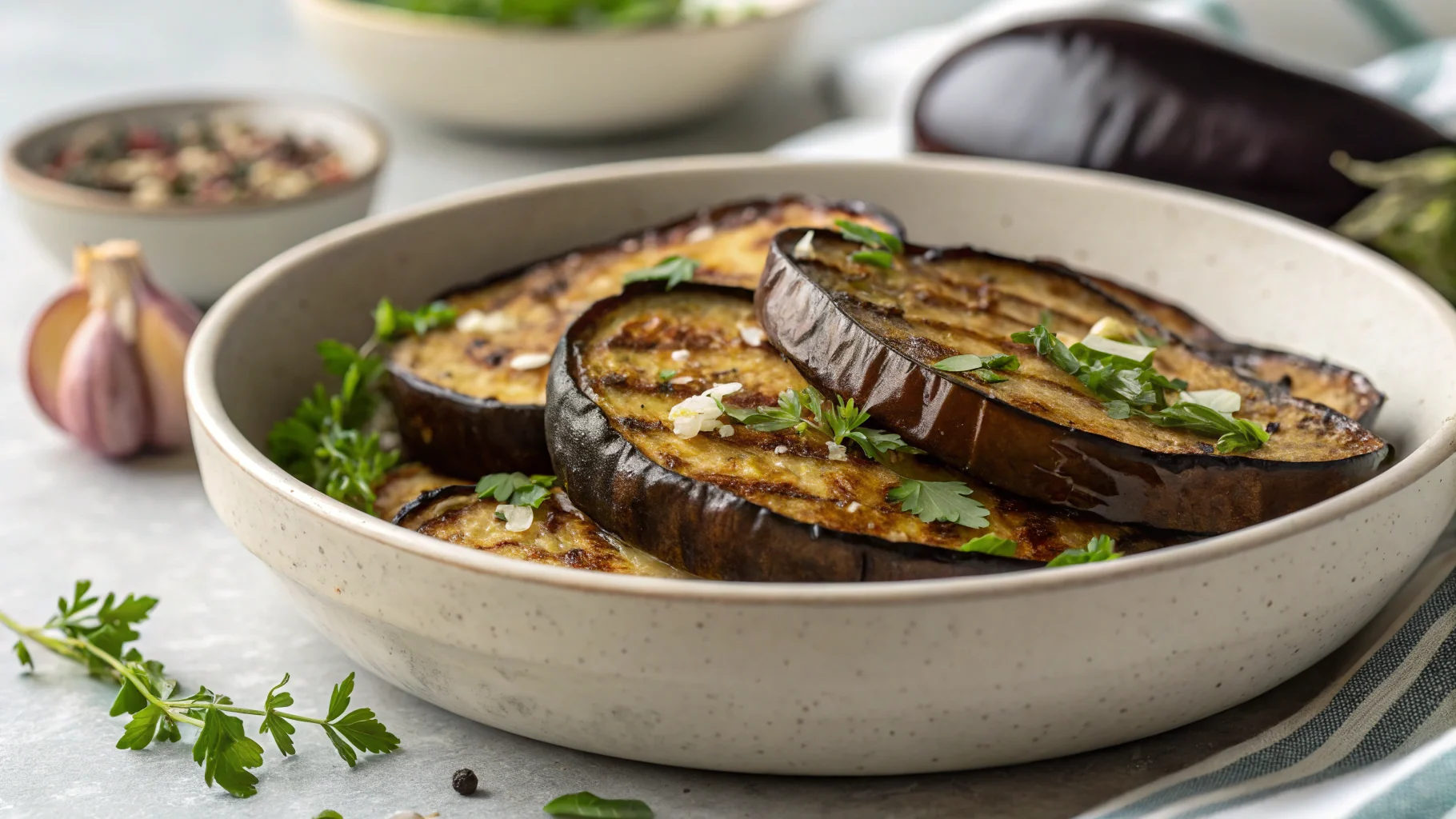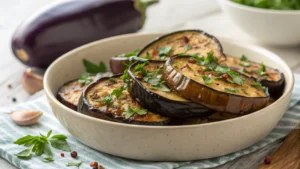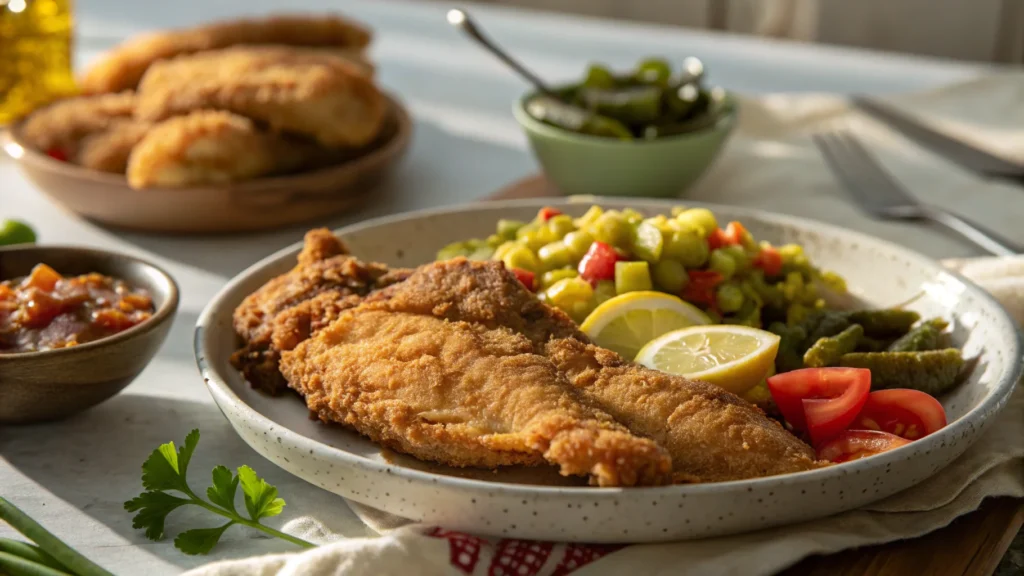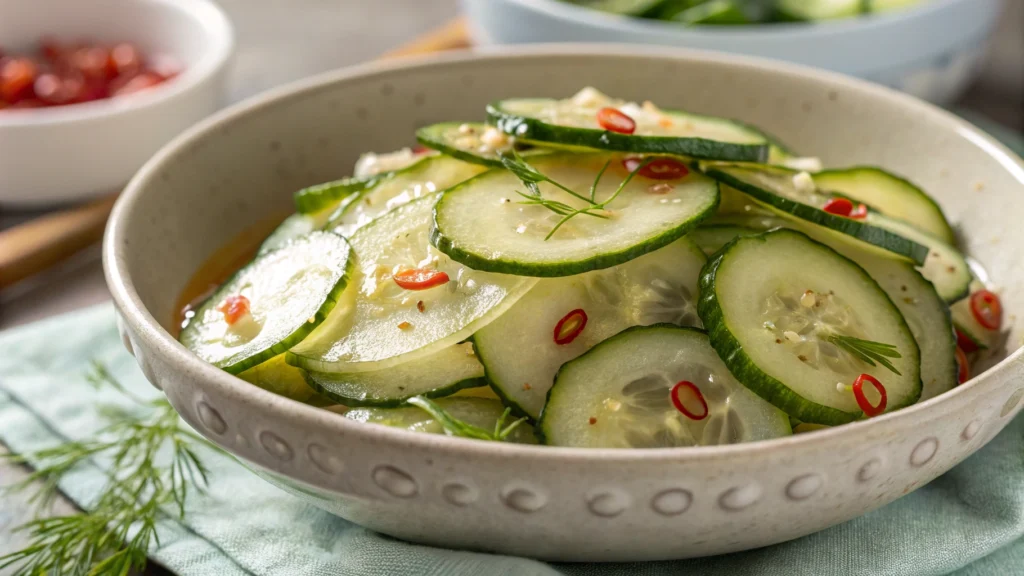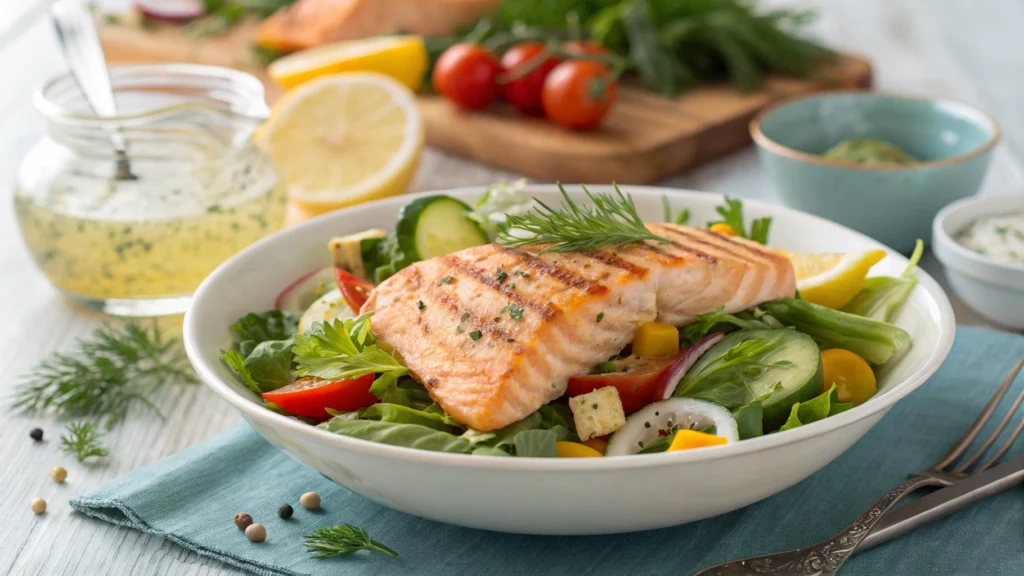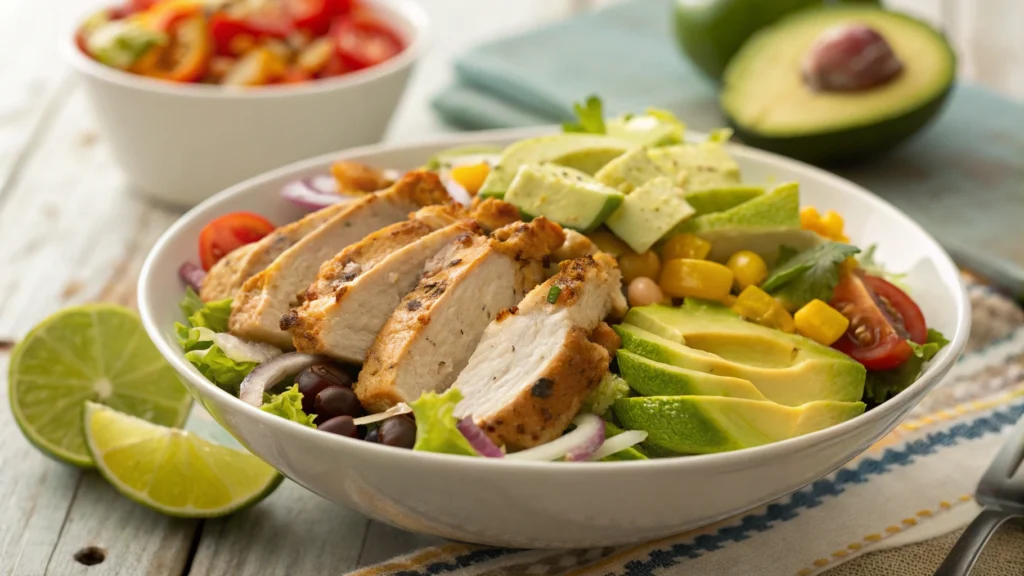Is your eggplant turning out soggy, bitter, or flavorless no matter which recipe you try? You’re not alone — over 60% of home cooks report dissatisfaction with their results when preparing eggplant, according to recent survey data from The Kitchn. But that ends today. This Garlic Herb Roasted Eggplant recipe delivers bold, crave-worthy flavor in just five simple steps, transforming the humble eggplant into a savory, perfectly roasted masterpiece.
Whether you’re looking for a hearty meatless main or a standout side, Garlic Herb Roasted Eggplant offers a healthy and incredibly flavorful solution. You’ll get the silky center, caramelized edges, and the deep aromatics of roasted garlic and herbs — all without complicated techniques or lengthy prep.
Let’s dive in.
Ingredients List
To create this Garlic Herb Roasted Eggplant dish, you’ll need a blend of fresh produce, pantry staples, and fragrant herbs. Below is the full list with options to customize based on your taste or dietary preferences:
- 2 medium eggplants (look for firm, unblemished skin)
- 3 tablespoons olive oil (or avocado oil for a higher smoke point)
- 4 garlic cloves, finely minced (or use 1 tsp garlic powder in a pinch)
- 1 teaspoon dried oregano (substitute with Italian seasoning for variety)
- ½ teaspoon dried thyme
- ½ teaspoon smoked paprika (optional, for a smoky flavor boost)
- Salt and freshly ground black pepper, to taste
- 1 tablespoon fresh parsley, chopped (for garnish)
- Zest of ½ lemon (adds brightness and depth)
Optional Add-ins:
- 2 tablespoons grated Parmesan cheese (for a golden, savory crust)
- 1 teaspoon balsamic vinegar (for richer undertones)
- Red pepper flakes (for a spicy kick)
With these ingredients, you’ll create a deeply flavorful roasted eggplant that’s crisp on the outside, creamy on the inside, and infused with garlic-herb goodness.
Timing
This Garlic Herb Roasted Eggplant recipe fits easily into your weeknight meal plan.
- Prep Time: 10 minutes
- Cook Time: 25 minutes
- Total Time: 35 minutes
That’s roughly 20% faster than most eggplant-based dishes, which often require salting or frying. Thanks to oven-roasting and streamlined prep, you’ll have a gourmet-worthy dish in under 40 minutes.
Step-by-Step Instructions
Step 1: Prep the Eggplant
Start by washing your eggplants and cutting off the ends. Depending on your preference, you can peel them (for a smoother texture) or leave the skin on for extra fiber and color. Cut into ¾-inch thick rounds or half-moons — this thickness ensures crisp edges and a buttery center.
Pro Tip: To reduce bitterness, lightly salt the slices and let them sit for 10 minutes. Then blot off excess moisture with a paper towel.
Step 2: Make the Garlic Herb Oil
In a small bowl, mix olive oil with minced garlic, oregano, thyme, paprika, salt, and pepper. Whisk well to create a flavorful marinade. This is where magic starts — garlic and herb-infused oil locks moisture into the eggplant while boosting umami.
Flavor Insight: Roasting garlic mellow its pungency and unlocks natural sweetness. Pairing it with herbs like oregano and thyme creates a Mediterranean-style depth of flavor.
Step 3: Brush and Arrange the Eggplant
Preheat your oven to 425°F (218°C) and line a large baking sheet with parchment paper for easy cleanup. Lightly brush both sides of each eggplant slice with the garlic herb oil. Arrange them in a single layer with space in between.
Pro Tip: Avoid stacking slices or overcrowding the pan. Good air circulation = even caramelization.
Step 4: Roast to Perfection
Roast for 20–25 minutes, flipping halfway through. You’ll know it’s done when the edges are golden brown and the centers are tender enough to cut with a fork. If desired, sprinkle grated Parmesan during the last 5 minutes of roasting for a cheesy finish.
Bonus Tip: Want a charred finish? Broil for 1–2 minutes at the end — just keep a close eye to avoid burning.
Step 5: Garnish and Serve
Remove from the oven and finish with a sprinkle of fresh parsley and lemon zest. The citrusy top-note lifts the rich garlic-herb base, making everything taste brighter and fresher.
Nutritional Information
Here’s a breakdown per serving (½ an eggplant, about 4–5 slices):
- Calories: 120 kcal
- Total Fat: 9g
- Saturated Fat: 1.3g
- Carbohydrates: 9g
- Fiber: 5g (20% of daily recommended)
- Sugar: 3g (naturally occurring from the vegetable)
- Protein: 2g
- Sodium: 210mg
Eggplants are a great source of antioxidants like nasunin (found in the skin) and are low in calories while high in fiber, making them perfect for weight-conscious or heart-healthy diets.
Healthier Alternatives for the Recipe
Looking to lighten it up or personalize it further? Here are several delicious variations:
- Oil-Free Option: Roast with vegetable broth spray instead of oil — still flavorful but much lighter.
- Low-Sodium Diet: Use garlic powder instead of salt and skip Parmesan.
- Vegan/Dairy-Free: This recipe is naturally vegan — just avoid cheese or use a dairy-free Parmesan alternative.
- Gluten-Free: Completely gluten-free as written — no need for substitutions.
- Protein Boost: Add chickpeas or lentils on the side for a complete meal.
Serving Suggestions
Garlic Herb Roasted Eggplant is famously versatile. Here are some unique ways to serve it:
- As a Meatless Main: Stack slices with marinara and dairy-free mozzarella for a plant-based eggplant parmesan.
- On Toast: Lay roasted slices on sourdough with hummus and arugula for a gourmet open-faced sandwich.
- Over Grains: Serve alongside quinoa, farro, or rice with a dollop of tahini or tzatziki.
- As an Appetizer: Slice smaller rounds and serve with toothpicks and dipping sauces at your next gathering.
Personal Tip: I love pairing this with my lemony couscous recipe — the textures complement each other beautifully.
Common Mistakes to Avoid
- Skipping the Salting Step
- This may leave your eggplant bitter. Even a brief salting helps.
- Using Too Much Oil
- Eggplant is like a sponge; too much oil makes it greasy. Stick to the recommended amount.
- Overcrowding the Pan
- Prevents caramelization and leads to steaming. Use two pans if needed.
- Not Preheating the Oven
- Starting cold means uneven cooking and limp texture.
- Cutting Too Thin
- Thin slices may burn easily. Thicker cuts roast more evenly and stay creamy inside.
Storing Tips for the Recipe
Leftovers? No problem.
- Refrigeration: Store in an airtight container for up to 5 days. Best when reheated in the oven or toaster oven to retain crispness.
- Freezing: While possible, the texture may degrade. Flash-freeze slices on a tray, then store in a freezer-safe bag for up to 2 months.
- Meal Prep: Prep the eggplant and garlic oil ahead of time and refrigerate separately. Assemble and roast when ready to eat.
Storage Insight: Reheat at 350°F for 7–10 minutes for best flavor revival.
Conclusion
Garlic Herb Roasted Eggplant is more than a side dish — it’s an experience in flavor and texture. With just 35 minutes and a short list of pantry staples, you can transform this often-misunderstood vegetable into a flavorful favorite the whole family will crave.
Why not give it a try tonight? Let the aroma of roasting garlic and herbs fill your kitchen and awaken your taste buds. If you loved this recipe, don’t forget to leave a comment, share it with a friend, or check out our other herb-infused vegetable dishes for inspiration.
FAQs
🔹 Can I make Garlic Herb Roasted Eggplant in an air fryer?
Yes! Air fry at 400°F for 15 minutes, flipping halfway. It’s quicker and still delivers a crispy texture.
🔹 Is peeling the eggplant necessary?
Not at all. The skin has beneficial antioxidants and adds texture. But feel free to peel if you prefer a smoother bite.
🔹 Can I use fresh herbs instead of dried?
Absolutely. Use 3x the amount of dried herbs for fresh. Add fresh thyme and oregano in the last 5 minutes of roasting to preserve their essence.
🔹 What are the best eggplant varieties for this recipe?
Globe eggplants are most common, but Italian or even Japanese eggplants yield excellent results with subtle differences in texture.
🔹 How can I reduce the bitterness in eggplant naturally?
Salt and let it sit for 10 minutes before roasting. This draws out excess moisture and reduces natural bitterness.
